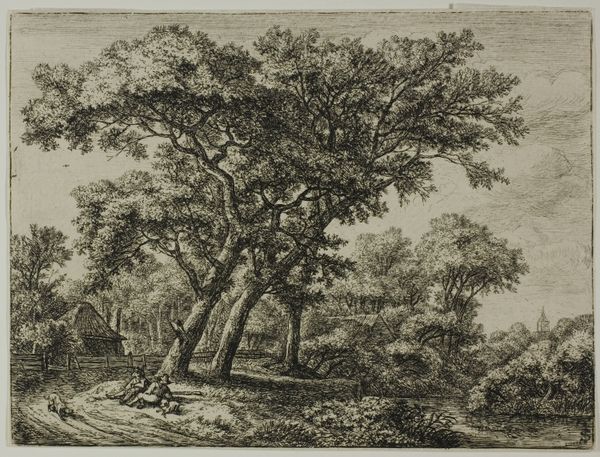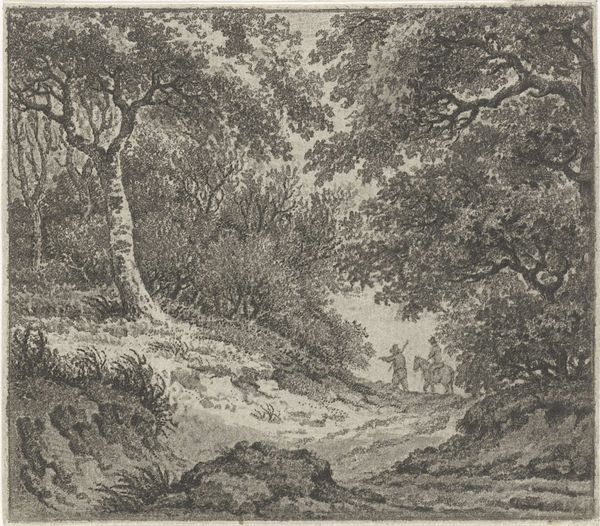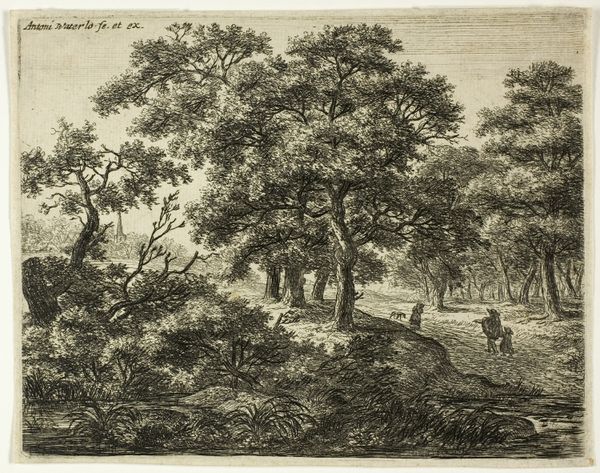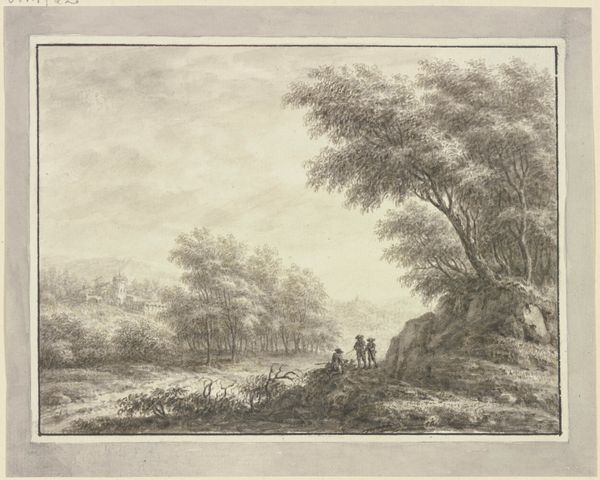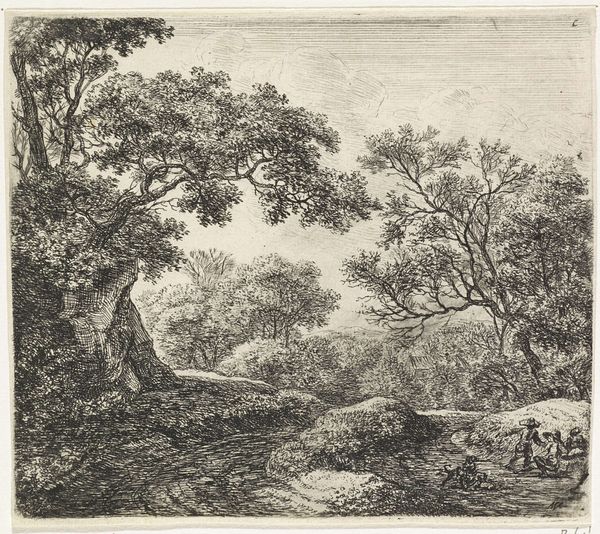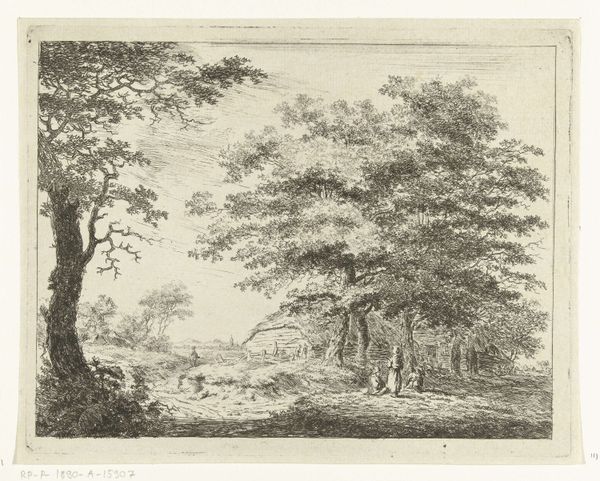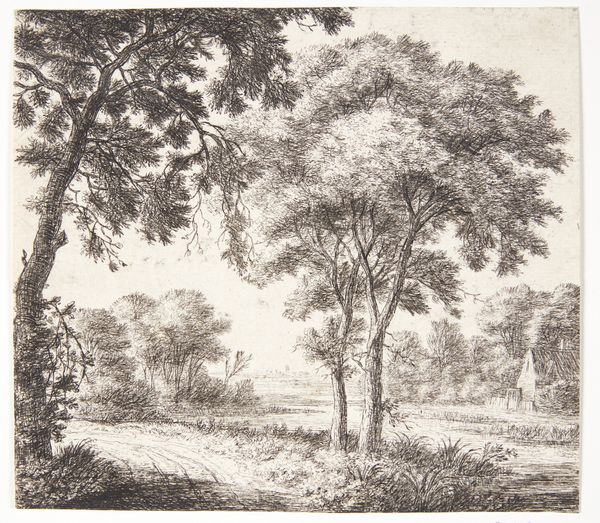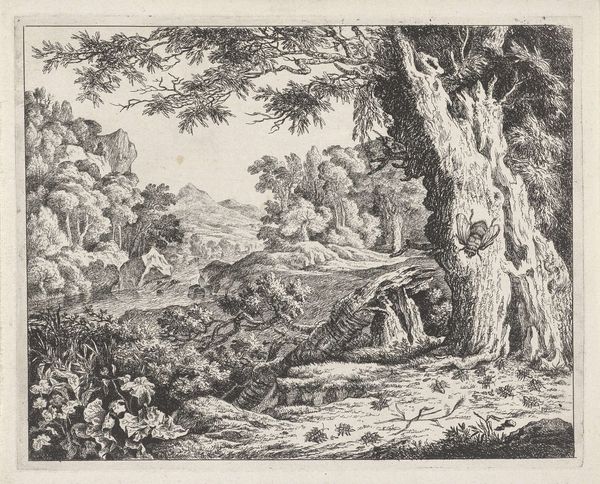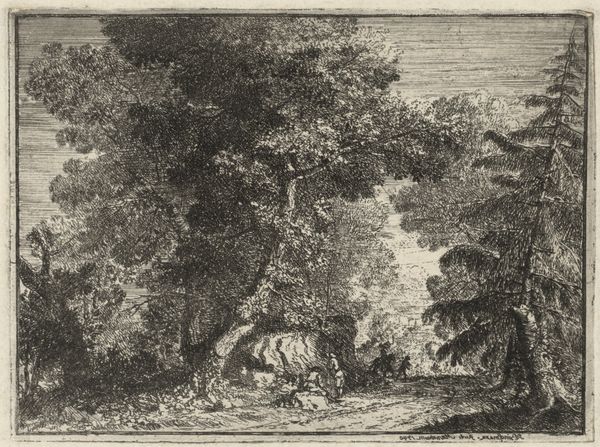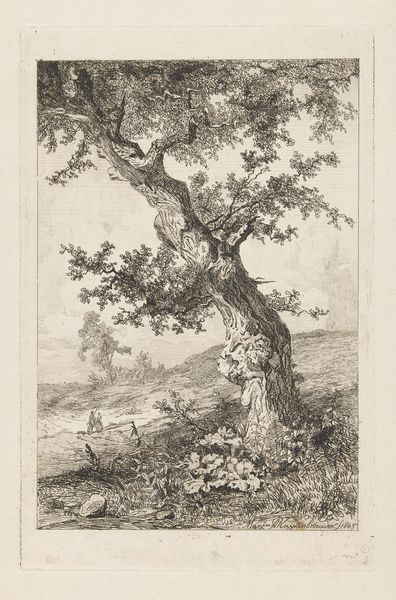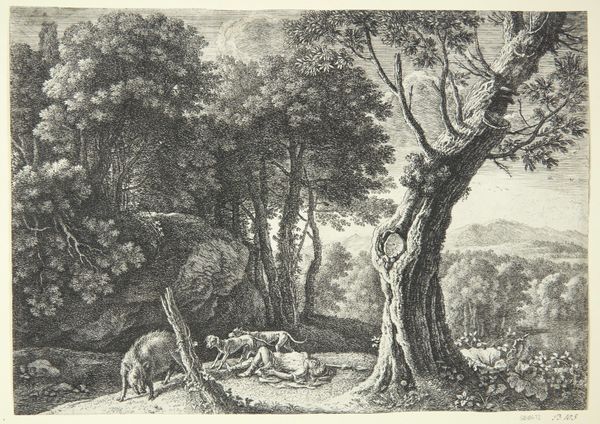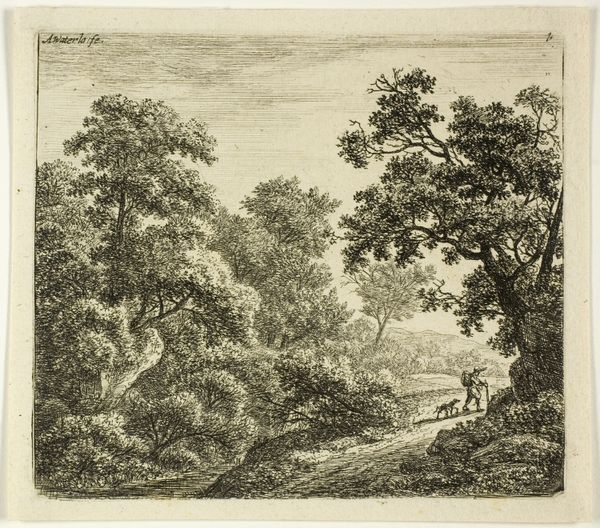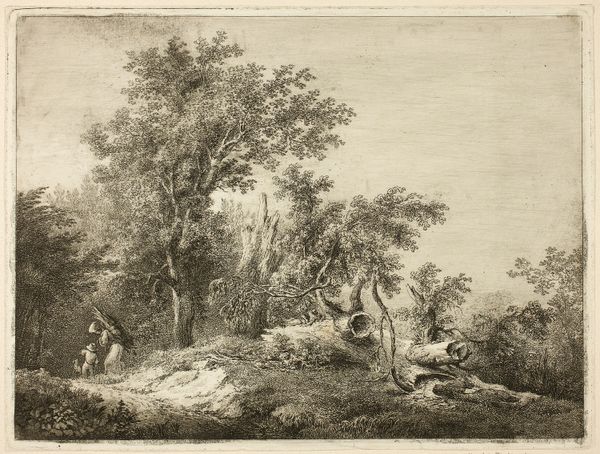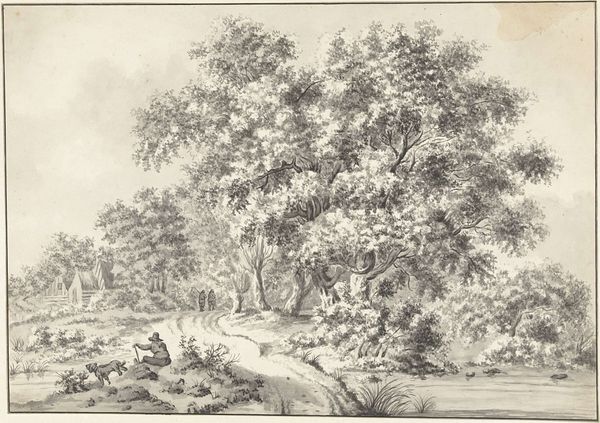
drawing, print, etching, paper
#
drawing
#
medieval
# print
#
etching
#
landscape
#
paper
Dimensions: 194 × 279 mm (image/sheet, trimmed to platemark)
Copyright: Public Domain
Curator: This is "Wanderer Resting in the Forest," an etching by Martin von Molitor. Although the piece is undated, its style aligns with landscape prints from the late 18th or early 19th century. It resides here at the Art Institute of Chicago. Editor: Oh, it has such a wistful, quiet quality. A landscape teeming with tiny details, yet… almost monotone, as though time itself is muted. Curator: Landscape prints like this were very popular. Molitor was capitalizing on a growing interest in picturesque scenery among the burgeoning middle class, particularly their yearning for leisure and simpler times. Prints democratized art viewing. Editor: Simpler times indeed! I see the lone wanderer, looking a little world-weary maybe, taking a breather under a tree whose branches arch like a benediction. There’s something quietly powerful about it, how this tiny figure and that stoic tree form the silent drama in the print. It makes you reflect. Curator: And note that suggestion of ruins in the distance. They’re quite subtle, barely present in the soft light. Prints played a vital role in visualizing national identity. You would purchase a scene not merely for the beauty, but because it speaks to ideas about your environment. Editor: Ideas of nature that exclude so much. You rarely see workers toiling here in these scenes. This world feels intentionally curated. So tranquil it's unnerving! It reminds me of trying to find quietude amid chaos and creating your own oasis. What do you think a contemporary landscape artist would say about the environmental messaging being sold in those pastoral visions? Curator: Today, the environmental message would certainly be very different. It serves to remember that what we see as an untouched space often bore witness to intense social, agricultural, or even industrial modification, conveniently erased for a romantic, elite vision of pastoral idyll. Editor: I can almost feel the weight of my backpack, ready to pick up where I left off. Perhaps there's wisdom to be found in this crafted nostalgia too, maybe that all journeys require pauses, a look behind you to keep looking forward. Curator: Perhaps. The image reflects how prints influenced the developing concepts of landscape as more than topography. They offered an emotional landscape we still aspire to create and, equally important, analyze today.
Comments
No comments
Be the first to comment and join the conversation on the ultimate creative platform.
